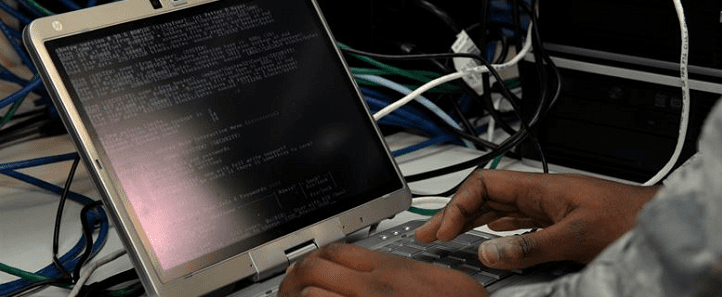
“Significant Increase” in USDA Employees Viewing Porn on Govt. Computers During Work

Another federal agency is embroiled in a large-scale pornography scandal and in this case, it took leadership five months to block hundreds of websites used by employees and contractors to watch porn on government computers during work hours. It involves the U.S. Department of Agriculture (USDA), a bloated agency notorious for wasteful spending and an eye-popping $140 billion budget. The agency’s mission is to provide leadership on food, agriculture, natural resources, rural development, nutrition and related issues.
Back in September the USDA’s Office of Inspector General (OIG) blasted the agency for misusing information technology networks to view pornographic content on government-issued computers and other communication devices. In a management alert memo the watchdog revealed a “significant increase” in the number of USDA employees and contractors viewing and sharing unlawful or otherwise inappropriate pornographic content using their government-issued computers and other communication devices. Some of the content includes child pornography, according to the USDA OIG memo. “This employee misconduct is preventable, and it unnecessarily exposes USDA and its systems to significant risk,” the OIG memo states.
The USDA watchdog harps on the security risks of surfing these dicey websites on agency equipment but fails to mention the atrocity of public employees getting paid by taxpayers to enjoy porn. “Websites that disseminate pornographic material historically have proven themselves to be a network attack vector and, as such, present an ideal opportunity for those individuals who would seek to compromise a USDA employee or contractor for the purpose of extorting access to the Department’s network(s) and/or sensitive or classified information,” the OIG writes. This begs the question; why did USDA management take so long to finally block access to the porn sites? It wasn’t until late last month that the agency’s Office of the Chief Information Officer (OCIO) acknowledged a problem and announced that, beginning this week, more than 400 websites will be blocked. A news organization dedicated to covering the federal government obtained the email sent from USDA chief information security officer Chris Lowe to the agency’s more than 100,000 employees. “Lowe sent a memo to staff detailing the sites to be blocked, which include popular sites such as Facebook, Snapchat and What’sApp as well as dozens of incomprehensible URLs,” the article reveals. It’s not clear if the rampant porn surfing among USDA employees played a role in a recent $8 million increase to enhance the agency’s cyber security capabilities.
The USDA is hardly alone in the porn scandal. An epidemic of federal employees watching pornography on government computers during work hours got so out of control that legislation (Eliminating Pornography from Agencies Act) was introduced in Congress a few years ago to contain the embarrassing crisis. Porn has for years been part of the job at some government agencies and in fact, numerous federal audits have long documented the enraging details of how our tax dollars are being wasted. Judicial Watch has also reported extensively on the topic, especially the porn crisis at the Securities and Exchange Commission (SEC), the agency charged with policing the nation’s financial industry. While the economy crumbled, the SEC was preoccupied with pornography. In fact, high-ranking managers at the agency regularly spent work hours gawking at pornography web sites on their government computers while the country’s financial system collapsed.
We’re talking dozens of SEC employees, including senior officers with lucrative six-figure salaries viewing explicit images on their agency computers during work hours. One senior attorney at the SEC headquarters in Washington D.C. spent up to eight hours a day accessing internet porn. When his government computer ran out of file space, he downloaded pornographic images on compact discs and stored them in boxes in his office. One agency accountant tried to access porn websites 16,000 times in one month and got busted with hundreds of pornographic images on her computer hard drive. Another SEC accountant used his government computer to upload his own sexually explicit videos onto various porn websites that he frequented during business hours.
Other agencies have also been embroiled in porn scandals evidently making legislation necessary. Among them is the National Science Foundation (NSF), which has been exposed by its inspector general for having employees spend significant portions of their workdays watching, downloading and e-mailing pornography on government computers without ever getting caught. This workday porn surfing costs American taxpayers tens of thousands of dollars, according to the agency watchdog, yet the NSF keeps receiving monstrous allocations from Congress every year.
















